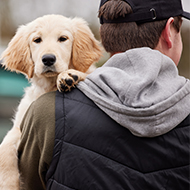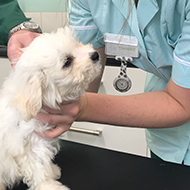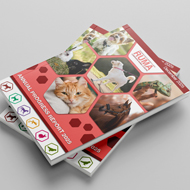UC Davis vets warn bird owners of potentially fatal inhalations.
Many of the toxins revolve around the typical kitchen
Avian specialists at the UC Davis School of Veterinary Medicine are warning of several potential aerosol toxicoses, and are urging bird owners to take special precautions with their animals.
“Birds are exquisitely sensitive to aerosol toxins, much more so than humans,” said Leslie Woods, professor of clinical pathology, microbiology and immunology at the school. “That is why canaries were used in the coal mines as sentinels for gas leaks to give the workers time to vacate the mines. Their fragile respiratory anatomy and physiology will cause them to die long before humans. If the workers saw dead canaries in the mines, they knew the environment was not safe for them."
California Animal Health and Food Safety (CAHFS) has discovered that items such as self-cleaning ovens and teflon-coated cooking pans can be culprits in bird deaths. These non-stick surfaces emit a gas (polytetraflouroethylene (PTFE) that can kill birds within minutes when they are heated to temperatures above 260 degrees - a temperature that can be attained when the pans are left to boil dry or food is left to burn. Beyond kitchen items, other PTFE sources include teflon-coated irons, ironing board covers and heat lamps.
UC Davis vets warn, though, that there are many other toxins beyond just PTFE that affect the fragile respiratory system of birds. Other avian inhaled toxins include bleach, ammonia, cigarette smoke, burned foods, spray paint. Items such as air fresheners, hair products, nail polish and scented candles may also produce other airborne toxins. Bird owners should be sure their birds are removed to well ventilated, closed rooms in the house (or outside) when using these items.
UC Davis vets say that birds showing signs of respiratory distress should be seen by a vet immediately. Signs may include an increased effort to inhale and exhale, short and rapid breathing, wheezing, change or loss of voice, depression, and a bluish colour to the skin.







 The RCVS has announced a new version of its 1CPD mobile app, with enhanced features for veterinary surgeons and veterinary nurses to record their continuing professional development.
The RCVS has announced a new version of its 1CPD mobile app, with enhanced features for veterinary surgeons and veterinary nurses to record their continuing professional development.
